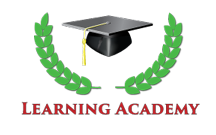
- Description
- Objectives
- Outline
- Materials
- System Requirements
Adverse childhood experiences describe traumatic events that occur before the age of 18 and are categorized into three groups: abuse, family/household challenges, and neglect. Our Building Student Resiliency course is for the educators who work with the youngest and most vulnerable members of our society: our children. We discuss how adverse childhood experiences impacts teaching and learning while also examining how to incorporate appropriate instructional strategies in the classroom. We also describe how to make sure schools are proactive in more therapeutic and compassionate ways for all students.
After completing this course, you should be able to:
- Identify how adverse childhood experiences are categorized and how they affect children
- Recall the effects of trauma on the brain and how adverse experiences affect behavior and learning
- Recognize classroom interventions and behavior management techniques
- Describe how to implement a trauma-informed framework in classrooms and school districts
Building Student Resiliency Module 1
Adverse Childhood Experiences
Adverse childhood experiences are classified into 3 categories – abuse, family/household challenges, and neglect. In this module we describe these categories, as well as aspects of self-care and self-awareness.
- Adverse Childhood Experiences
- Burnout or Compassion Fatigue
- Intervention
- Self-Care and Self-Awareness
- Physical, Emotional, and Mental Health Wellness
Building Student Resiliency Module 2
Effects of Trauma on the Brain
This module dives into the concept of transformationist teaching and learning. We discuss the pedagogy-growing mindset, self-care, and self-esteem. We also explore how areas of the brain are activated by emotions and how trauma impacts learning and behavior.
- Courage to Teach
- Pedagogy-Growing Mindset
- Progress Not Perfection
- Effects of Trauma on the Brain
- Behavior and Learning
Building Student Resiliency Module 3
Differentiating Interventions
Students who have been impacted by adverse childhood experiences need to feel authentic relationships based on trust, belonging, and feeling valued. This module discusses behavior management techniques, response to intervention, and creating positive relationships.
- Teaching Behaviors
- Differentiating Interventions
- Changing Pedagogy
- Envisioning a Compassionate School
Building Student Resiliency Module 4
From Theory to Practice
Each school’s journey to implement a trauma-informed framework is unique. Each staff’s understanding of trauma and adverse childhood experiences are different. This final module discusses how to evaluate classroom programs and how to effectively change and plan curriculum.
- Transformations Actions
- Assessing and Building Capacity
- Evaluating Program Effectiveness
- Guide to Transformation
- Evaluation and Planning
**Outlines are subject to change, as courses and materials are updated.**
Ed4Career is committed to being both environmentally conscious and making it easier for you to study! We’re making your education mobile! All of our textbooks are now provided as eTextbooks. You can access them on your laptop, tablet, or mobile device and can study anytime, anywhere.
The move away from physical books to eTextbooks means you get the latest, most up-to-date version available. This also makes your training more accessible, so you can study anywhere you have your phone or tablet. The best part is that all materials are included in your training cost so there are NO extra fees for books!
Internet Connection
- Broadband or High-Speed - DSL, Cable, and Wireless Connections
*Dial-Up internet connections will result in a diminished online experience. Classroom pages may load slowly and viewing large audio and video files may not be possible.
Hardware Requirements
- Processor - 2GHz Processor or Higher
- Memory - 1 GB RAM Minimum Recommended
PC Software Requirements
- Operating Systems - Windows 7 or higher
- Microsoft Office 2013 or higher. Also, you could use a general Word Processing application to save and open Microsoft Office formats (.doc, .docx, .xls, .xlsx, .ppt, .pptx)
- Internet Browsers - Google Chrome is highly recommended
- Cookies MUST be enabled
- Pop-ups MUST be allowed (Pop-up Blocker disabled)
- The Kindle Reader App or VitalSource Bookshelf App are needed for many of our courses (No special equipment needed. This can be downloaded for FREE onto your computer.)
- PowerPoint Viewer (if you do not have PowerPoint)
- Adobe PDF Reader
- QuickTime, Windows Media Player &/or Real Player
MAC Software Requirements
- Operating Systems - Mac OS x 10 or higher with Windows
- Mac office programs or a Word Processing application to save and open Microsoft Office formats (.doc, .docx, .xls, .xlsx, .ppt, .pptx)
- Internet Browsers- Google Chrome is highly recommended
- Cookies MUST be enabled
- Pop-ups MUST be allowed (Pop-up Blocker disabled)
- The Kindle Reader App or VitalSource Bookshelf App are needed for many of our courses (No special equipment needed. This can be downloaded for FREE onto your computer.)
- PowerPoint Viewer (if you do not have PowerPoint)
- Adobe PDF Reader
- Apple QuickTime Media Player


